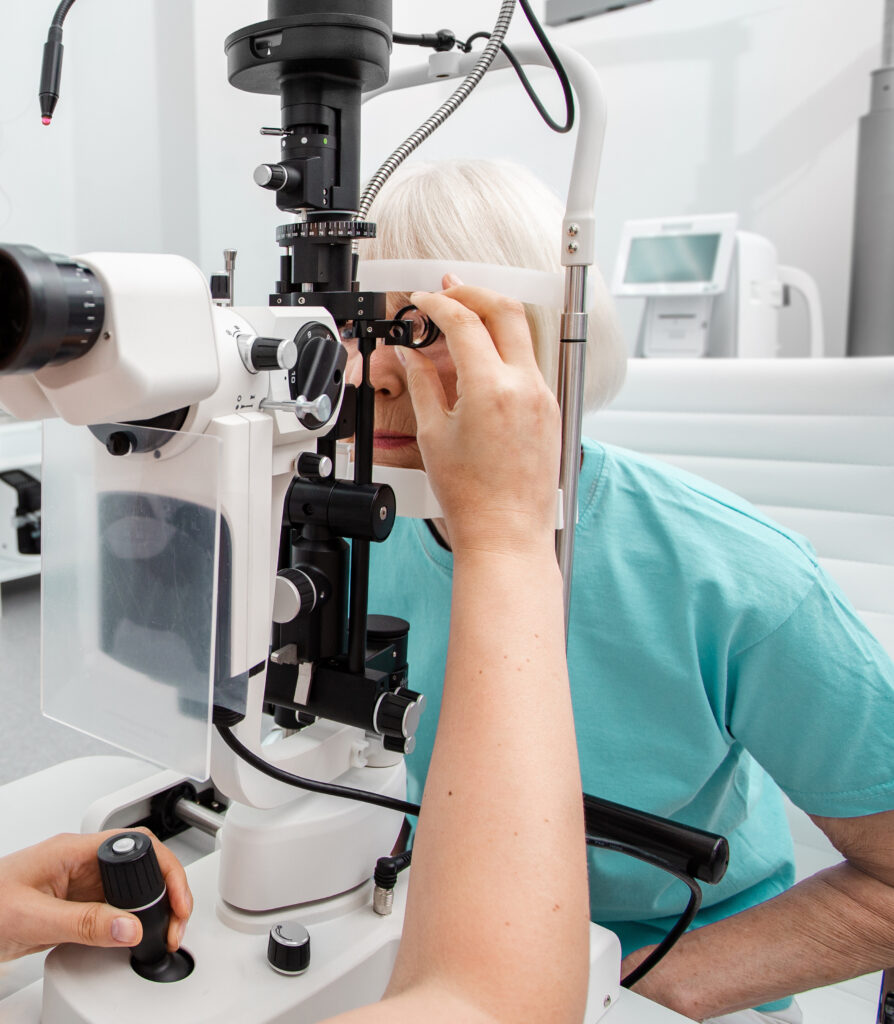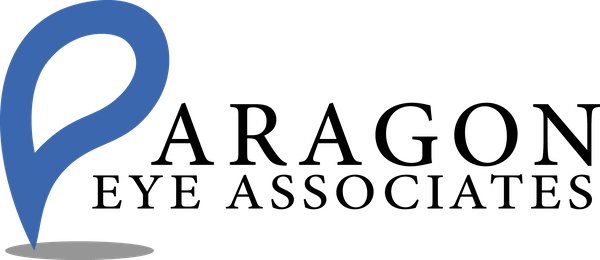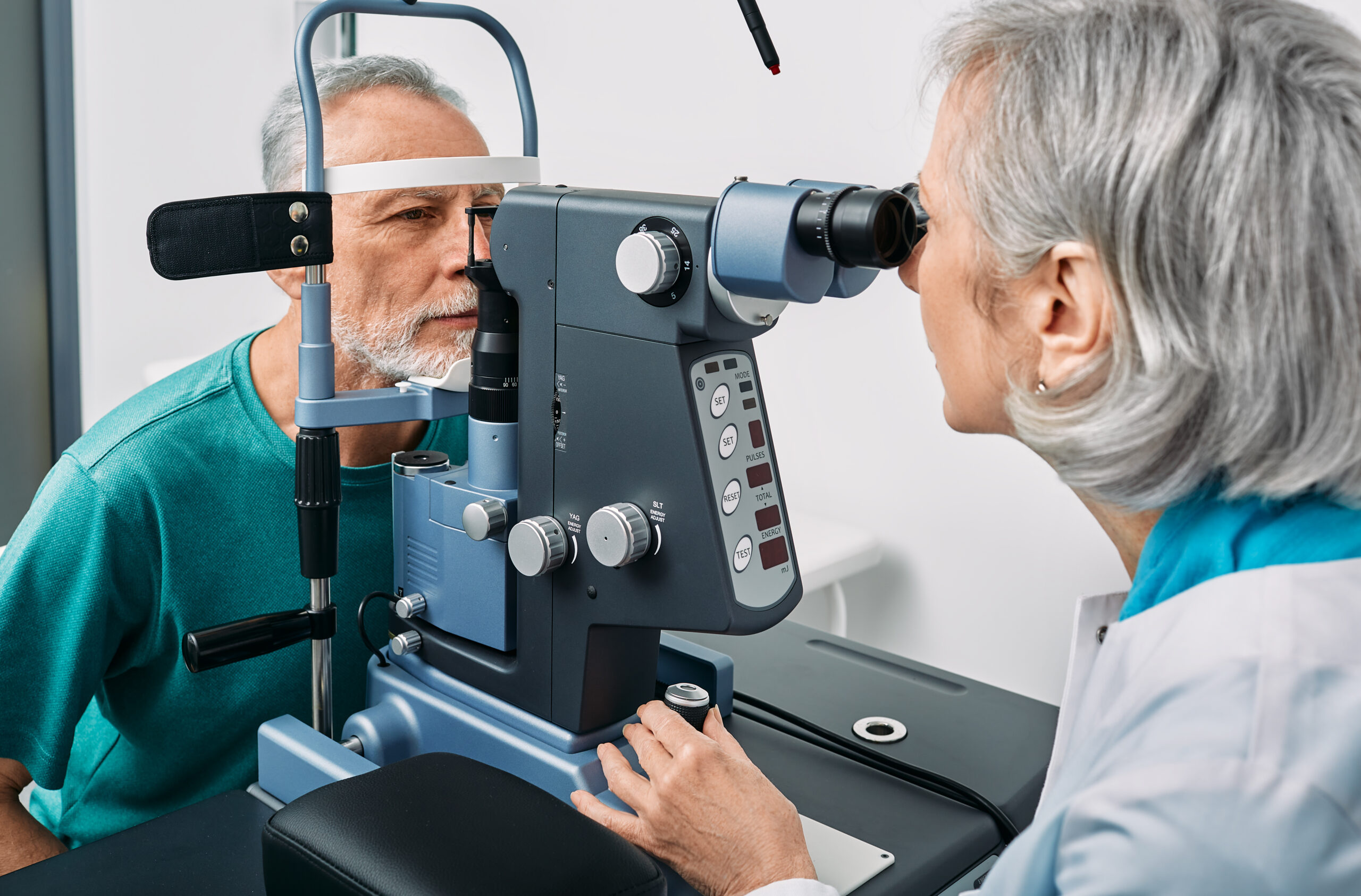Diabetes is a debilitating disease that impacts several areas of health, not least of which is the eyes. According to the CDC, roughly 37.3 million people in the United States have diabetes. Many of these individuals experience declining eye health and eventual blindness. At Paragon Eye Associates, our aim is to raise awareness about the risk factors of diabetic eye disease.
Below is some information about the impact diabetes can have on your eyesight and the factors that put you at increased risk of complications. If you struggle with diabetic eye disease, we urge you to contact us today. We have offices in Arlington and Mansfield, Texas that are staffed by experienced ophthalmologists and optometrists ready to help you with your vision.
Common Eye Diseases Caused by Diabetes

Diabetic eye disease is multifaceted. Since the disease is complex, it can result in several different conditions. Common eye diseases include:
- Diabetic Retinopathy – This issue can develop due to high blood sugar. Over time, having too much sugar in your blood due to diabetes can damage your retina (the part of your eye that detects light and sends signals to your brain through a nerve in the back of your eye).
- Diabetic Macular Edema – This condition develops due to an accumulation of excess fluid in the extracellular space within the retina. DME often presents no symptoms at the onset, so regular eye exams are important to diagnose the disease before complications arise.
- Glaucoma – This disease occurs when the optic nerve is damaged due to an abnormality in the eye’s drainage system. As fluid accumulates, the risk of damage to the optic nerve increases. Like DME, glaucoma may present no initial symptoms, so a detailed eye exam is important.
- Cataracts – This issue can be caused by diabetes, primarily due to high blood sugar (blood glucose) levels. As blood sugar increases, it can lead to structural changes in the eye’s lens that can accelerate the development of cataracts.
Risk Factors That Contribute to Diabetic Eye Disease
Along with diabetes, additional factors can put you at an increased risk for developing vision concerns. Some of the most common factors include:
- Being overweight
- Smoking
- Having high blood pressure
- Being over the age of 40
- Having high cholesterol
Certain factors, like age, are outside of our control. However, other factors can be addressed to minimize the risk of developing complications. Quitting smoking and exercising regularly can both have positive impacts on your long-term health.
When to See a Doctor
Diabetes can result in serious complications, and as mentioned earlier, many of the eye diseases that relate to diabetes present little-to-no initial symptoms. Therefore, you must schedule regular eye exams if you have this disease.
Diabetic eye disease can present several symptoms as it progresses. If you notice any of the following, be sure to get in touch with our team at Paragon Eye Associates as soon as possible.
- Blurred or distorted vision.
- Seeing floaters and flashes of light.
- Seeing dark spots in your vision.
Take Care of Your Eyes and Prevent Diabetic Eye Disease
The best way to avoid eye issues due to diabetes is to maintain a healthy lifestyle. This involves managing blood sugar levels, eating healthy, staying active, and scheduling regular eye examinations.
At Paragon Eye Associates, we can provide you with the support and attention you need to ensure the long-term health of your eyes. To connect with us, simply fill out the form below. You can also contact us over the phone by dialing (817) 277-6433 for our Arlington office or (817) 477-0223 for our Mansfield office.


